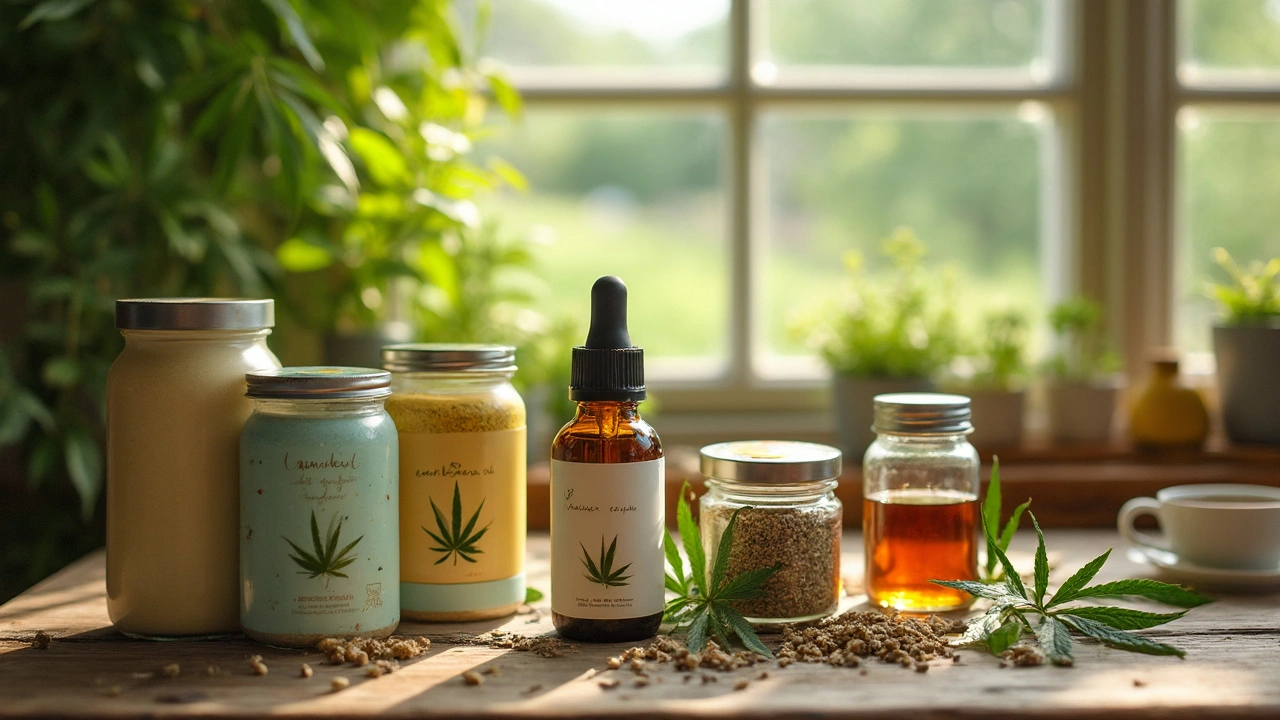Hemp Supplements: What They Are and How They Can Help You
Ever wonder why hemp‑derived products pop up on health blogs and social feeds? People are reaching for them because they promise calm, joint support, and a protein boost without the buzz of THC. If you’re curious about adding a hemp supplement to your routine, this guide gives you the basics you need right away.
Common Types of Hemp‑Based Products
The market splits hemp supplements into four main groups. First are CBD oils and tinctures. They’re taken under the tongue or mixed into drinks for quick absorption. Second, capsules provide a pre‑measured dose that’s easy to swallow.
Third, hemp protein powder works like any other plant protein – blend it into smoothies or oatmeal for a muscle‑friendly boost. Finally, topicals such as creams and balms deliver cannabinoids straight to skin, which can soothe sore muscles after a workout.
Choosing a Quality Hemp Supplement
The biggest pitfall is buying a product that isn’t what it claims. Look for a third‑party lab report – often called a COA – that lists the exact CBD and THC levels. A reputable brand will post this report on its website or include it with every bottle.
Check where the hemp was grown. U.S. farm‑grown hemp usually follows stricter pesticide rules than overseas sources. If the label says “organic” or “US‑grown,” you’re more likely to avoid unwanted chemicals.
THC content matters, too. Legal hemp must stay under 0.3% THC in most countries. Anything higher can cause psychoactive effects and may fail a drug test. Make sure the product’s label clearly states it meets this limit.
Price can be a clue but not the only one. Extremely cheap oils often cut corners on extraction, leaving behind solvents or lower CBD concentrations. Mid‑range pricing combined with clear lab results usually signals good quality.
When you finally pick a product, start with the lowest recommended dose. For oil, that’s typically 5–10 mg of CBD per day. Increase slowly if you need more effect. Protein powders follow serving suggestions on the label – usually one scoop (around 20‑30 g protein). Topicals are applied as needed; a thin layer is enough for most aches.
Side effects are rare, but some people notice mild dry mouth, lightheadedness, or digestive changes. If you’re pregnant, nursing, or on medication that affects the liver, check with a doctor before using hemp supplements.
Remember, hemp isn’t a cure‑all. It can complement a balanced diet, regular exercise and good sleep, but it won’t replace them. Use it as an extra tool rather than the main solution.
To sum up, pick a product with third‑party testing, low THC, transparent sourcing, and reasonable pricing. Start low, watch how your body reacts, and adjust gradually. With those steps you can enjoy the calm, protein boost, or joint relief hemp supplements promise without unwanted surprises.
Canadian Hemp Supplements: Nutrient-Packed and Planet-Friendly Game Changers
Canadian hemp supplements are turning heads for being loaded with nutrients and easy on the environment. This article dives into how these products stack up next to traditional supplements and why they're gaining so much attention across Canada. You'll get the facts on what makes hemp unique, practical tips for adding it to your routine, and a closer look at the sustainability story behind the crop. There’s also a guide to finding high-quality hemp products and common myths busted. Perfect for anyone curious about nutritious, eco-friendly options for daily health.
